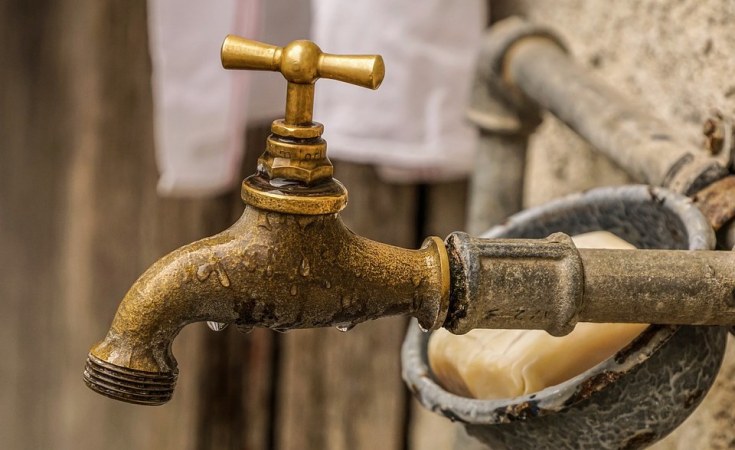An independent analysis following the cholera outbreak in Hammanskraal, north of Pretoria, did not find any presence of a cholera strain from water sources used for domestic purposes.
This was revealed during a media briefing on Wednesday by the Water Research Commission (WRC).
The WRC was commissioned by the Department of Water and Sanitation on 31 May 2023 to undertake an independent analysis of the cholera outbreak in Hammanskraal, focusing on the role of water, sanitation and hygiene in the spread of the disease.
The study focused on the role of water, sanitation and hygiene in the spread of the disease within the Hammanskraal area in the Tshwane Metro Council.
Presenting the main findings of the study, WRC Research Manager, Dr Eunice Ubomba-Jaswa, said the water samples collected from selected sources used for domestic purposes, did not show any presence of the toxigenic cholera strain, while analysis of water samples collected from various points in natural bodies within the designated area, revealed a very high degree of faecal contamination.
"This was confirmed by the presence of excessive numbers of E. coli and the presence of other known enteric pathogens such as Salmonella [a common bacterial disease that affects the intestinal tract] and Shigella [a bacterium that causes a diarrheal illness]. Therefore, the very poor microbiological quality of the river indicates that it is not acceptable for recreational use including religious rituals baptisms, swimming and bathing.
"Only one of the samples collected along the Apies River downstream from the Temba Wastewater Treatment Works tested positive for the presence of the toxigenic Vibrio cholerae strain. This observed presence downstream could be attributed to the general circulation of the strain in the community," Ubomba-Jaswa said.
Ubomba-Jaswa added that a cholera strain was detected in water samples collected from the Kaalplaasspruit, which flows into the Apies River further downstream in the Hammanskraal area.
She noted that although the study was unable to pinpoint the source of the Hammanskraal cholera outbreak "it highlighted some important public health risks which may well contribute towards causing future cholera and/or other waterborne disease outbreaks".
Although toxigenic vibrio cholerae was not detected within the Rooiwal Wastewater Treatment Works and Temba (drinking) Water Treatment Works, Ubomba-Jaswa said the results from the assessment showed that both plants are dysfunctional.
"Both the final treated wastewater and final treated drinking water was found not to be compliant with the regulated water quality standards, highlighting the community's susceptibility to health risks," she said.
Ubomba-Jaswa noted that during the outbreak period, both the rainfall patterns and temperature were suitable for the occurrence and transmission of the cholera in the environment.
Additionally, excessive pollution levels were observed in both the Pienaars and the Apies Rivers systems, manifested by the dominant visual presence of blue-green algae and water hyacinth.
"This presents potential water use related health risks."
Status of water and sanitation
On the status of water, sanitation and hygiene services, Ubomba-Jaswa said it was noted with great concern that some areas had no running water to flush the shared toilet facilities due to the prevalence of intermittent water supply, pushing the affected residents to riskier alternatives.
In the RDP sections of the settlement, most of the wash basins that were previously installed outside the toilets are dysfunctional and have detached from the walls.
"The absence of running water, hygiene facilities and soap within the toilet area implies that most individuals in the affected areas seldom wash their hands with soap after using the toilet, leaving the community vulnerable to the risk of any faecal pathogen transmission.
"Illegal solid waste dump sites within the Hammanskraal area present a threat to water bodies in the area and presents a source of faecal contamination that can perpetuate disease transmission," Ubomba-Jaswa said.
Recommendations
The study recommended an integrated water and wastewater quality surveillance into early warning systems for cholera outbreaks and considering the impacts of climate change, and early detection, surveillance, treatment and case management, which are critical in managing the spread of cholera.
"Improving access to clean drinking water and sanitation facilities, promotion of safe household water treatment, storage and handling, as well as safe hygiene practices are vitally important in preventing the spread of cholera and other waterborne diseases," the study recommended.
Water Research Commission CEO, Dr Jennifer Molwantwa, said the lessons from the Hammanskraal outbreak can help build resilience for the future.
Molwantwa said the WRC has established a panel of advisors and subject matter experts who will continually provide valuable insights and support on setting up key indicators that can serve as early warning signs for future waterborne diseases.
They will also advise on the establishment of a communication network to disseminate early warnings and preventive measures to communities, and strengthen current contingency plans and protocols for responding to waterborne disease outbreaks.


